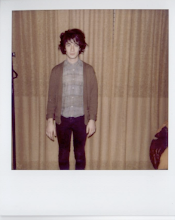Taking their name from a fictional pop group mentioned in Anthony Burgess's novel, A Clockwork Orange, (where 'The Heaven Seventeen' are at number 4 in the charts with "Inside"), Heaven 17 formed when Ian Craig Marsh and Martyn Ware split from their earlier group, The Human League, and formed the production company British Electric Foundation (BEF). BEF’s first recording was a cassette-only album called Music for Stowaways and an LP called Music for Listening To. Shortly after, they recruited their friend and photographer Glenn Gregory on vocals to complete their line-up for Heaven 17. Like The Human League, Heaven 17 heavily used synthesizers and drum machines (the Linn LM-1 programmed by Ware). Session musicians were used for bass and guitar (John Wilson) and grand piano (Nick Plytas). Where as the band's former colleagues The Human League had gone on to major chart success in 1981, Heaven 17 struggled to make an impact. Their debut single "(We Don't Need This) Fascist Groove Thang" attracted some attention and, due to its overtly left-wing political lyrics, was banned by BBC Radio 1[2] DJ Mike Read (who is a staunch Conservative).[3] However, neither this or the other four singles taken from the band's debut album Penthouse and Pavement managed to reach the UK Top 40.[1] The album itself proved to be a minor success and peaked at #14 on the UK album chart, and was later certified Gold by the BPI in 1982.
Wednesday, October 28, 2009
Subscribe to:
Post Comments (Atom)

No comments:
Post a Comment